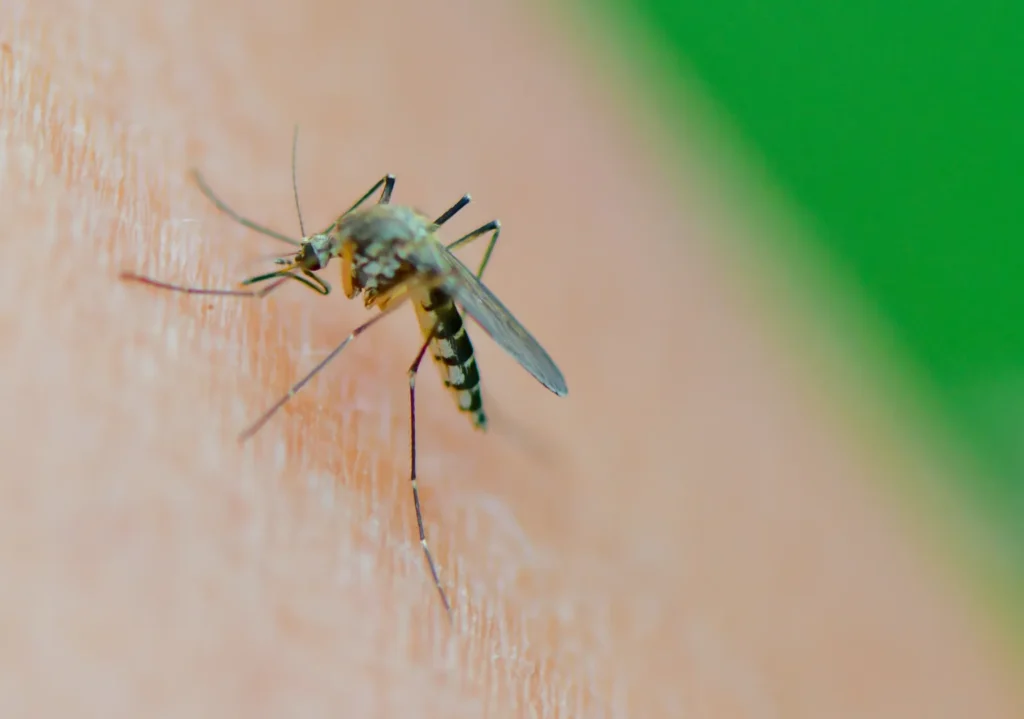A piercing buzz, bites that often go unnoticed at night, and then the itching: mosquitoes can be quite annoying.
In addition, species from tropical regions also pose a health risk as they can carry diseases.
So, first of all, it is better not to let insects get in our way. But there are also good remedies to alleviate the consequences of a bite.
dpa offers some tips below.
Repellents protect, but be careful with the ingredients
Mosquito repellents, which can be bought in pharmacies, drugstores, and supermarkets, offer a certain degree of protection. However, the most effective products, which are said to last up to 7.5 hours, have a drawback: they often contain DEET (diethyltoluamide), which is the best mosquito repellent but, according to the Consumer Advice Centre in the German city of Hamburg, poses health risks.
According to experts, the active ingredient Icaridin is better tolerated and provides good protection.
In tests carried out by the German consumer advice and product evaluation foundation Stiftung Warentest, the active ingredient para-menthane-3,8-diol (PMD) also performed well, whereas repellents based on lavender or lemongrass essential oils did not.
According to the Consumer Protection Agency, these products evaporate quickly from the skin and can irritate mucous membranes when exposed to the sun.
Repellent and sunscreen are incompatible
The Pharmaceutical Chamber of the central-western German state of Hesse recommends not applying mosquito repellent together with sun protection products, but at least 20 minutes afterward.
Because of possible side effects, she also advises using mosquito repellents only when necessary, such as when hiking outdoors.
It is also advisable to wear light-colored, loose-fitting clothing, which deters insects and makes it difficult for them to reach your skin.
It is also useful to place mosquito nets over beds and strollers and mosquito nets in front of windows and doors. Travelers can carry gauze in their luggage and stick it on the windows and openings of the place.
First, home remedies, then preparations
When insects bite, relief is needed quickly. “It helps to place a cold, damp cloth, a slice of lemon, or half an onion on the bite,” says Tristan Jorde, environmental consultant at the Hamburg Consumer Advice Centre. Compresses with acetic clay also work as a home balm.
Another possible remedy is antihistamines, i.e. remedies for allergy-related ailments, which are available for application to the skin or in tablet form.
According to the Association of the German Pharmaceutical Industry (BPI), over-the-counter creams, lotions, and gels containing the active ingredient hydrocortisone can also relieve mild inflammation. These preparations should be used “only for a few days and no longer than two weeks,” they warn.
With 50 degrees against the itch
So-called thermal wound healers are usually harmless, but should only be used on intact skin. The sooner the bite is treated, the more successful they promises to be.
According to the BPI, electronic heat pens prevent the body from releasing histamine, the itch-causing protein with which people react to bites, by providing a brief burst of heat of around 50 degrees Celsius. They are also effective against bites and stings from other insects, such as horseflies, bees, wasps, or fleas.

